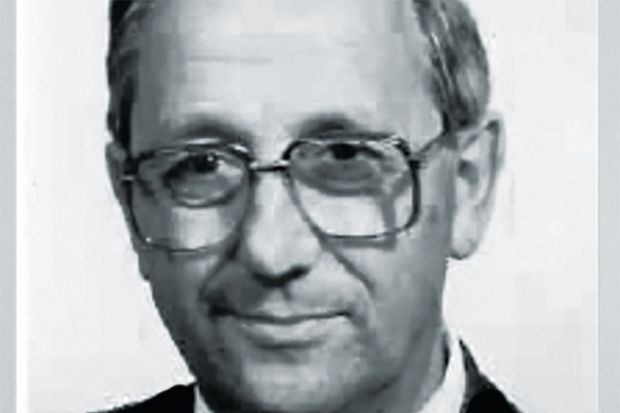A leading agricultural economist has died.
Sir John Marsh, the son of a Methodist minister, was born in October 1931 and brought up in the West Midlands. During National Service in the Royal Air Force, he was the only person on his station capable of playing the National Anthem on the piano, so he was called on to give a special rendering on the occasion of George VI’s death. It was also in the RAF that he learned to touch-type, which helped him to become an early adept at computer-based word processing.
During his first degree in politics, philosophy and economics at St John’s College, Oxford (1955), Sir John came under the influence of the well-known economist Colin Clark, who had a particular interest in agricultural economics, so he decided to go on to the University of Reading for a diploma in this area (1955-56). He then embarked on an academic career, largely at Reading, and rose through the ranks from research economist (1956-64) to lecturer (1964-70) and then reader (1970-76). Since the Treaty of Rome was signed in 1957, shortly after his initial appointment, the Common Agricultural Policy became one of his major research topics.
There followed an interlude when Sir John moved to the University of Aberdeen as professor of agricultural economics (and chairman of the Economics Group of the North of Scotland College of Agriculture) from 1977 to 1984. After this, he returned to Reading to take up a professorship in the department of agricultural economics and management, which he went on to lead for seven years. He served as dean of the Faculty of Agriculture and Food (1986-89) and then director of the Centre for Agricultural Strategy (1990-97) in the period running up to retirement.
A member of numerous industry bodies such as the Potato Marketing Board and the BBC Advisory Board for Rural and Agricultural Affairs, as well as a special adviser to the House of Lords Sub-Committee of the European Union, Sir John continued to work as an agricultural and food policy specialist well after his formal retirement. He was particularly admired for his ability to explain complex economic and political issues to every kind of audience and was knighted in 1999 for his contributions to agricultural education.
Richard Tranter, director of Reading’s Centre for Agricultural Strategy, praised Sir John for “a fine body of work that the next generation of agricultural economists can build on to improve public agricultural policy, especially at this crucial time for both the UK and the EU”.
Sir John died after a short illness on 30 September and is survived by his wife, Kathleen, a son, a daughter and two grandchildren.
Register to continue
Why register?
- Registration is free and only takes a moment
- Once registered, you can read 3 articles a month
- Sign up for our newsletter
Subscribe
Or subscribe for unlimited access to:
- Unlimited access to news, views, insights & reviews
- Digital editions
- Digital access to THE’s university and college rankings analysis
Already registered or a current subscriber?




